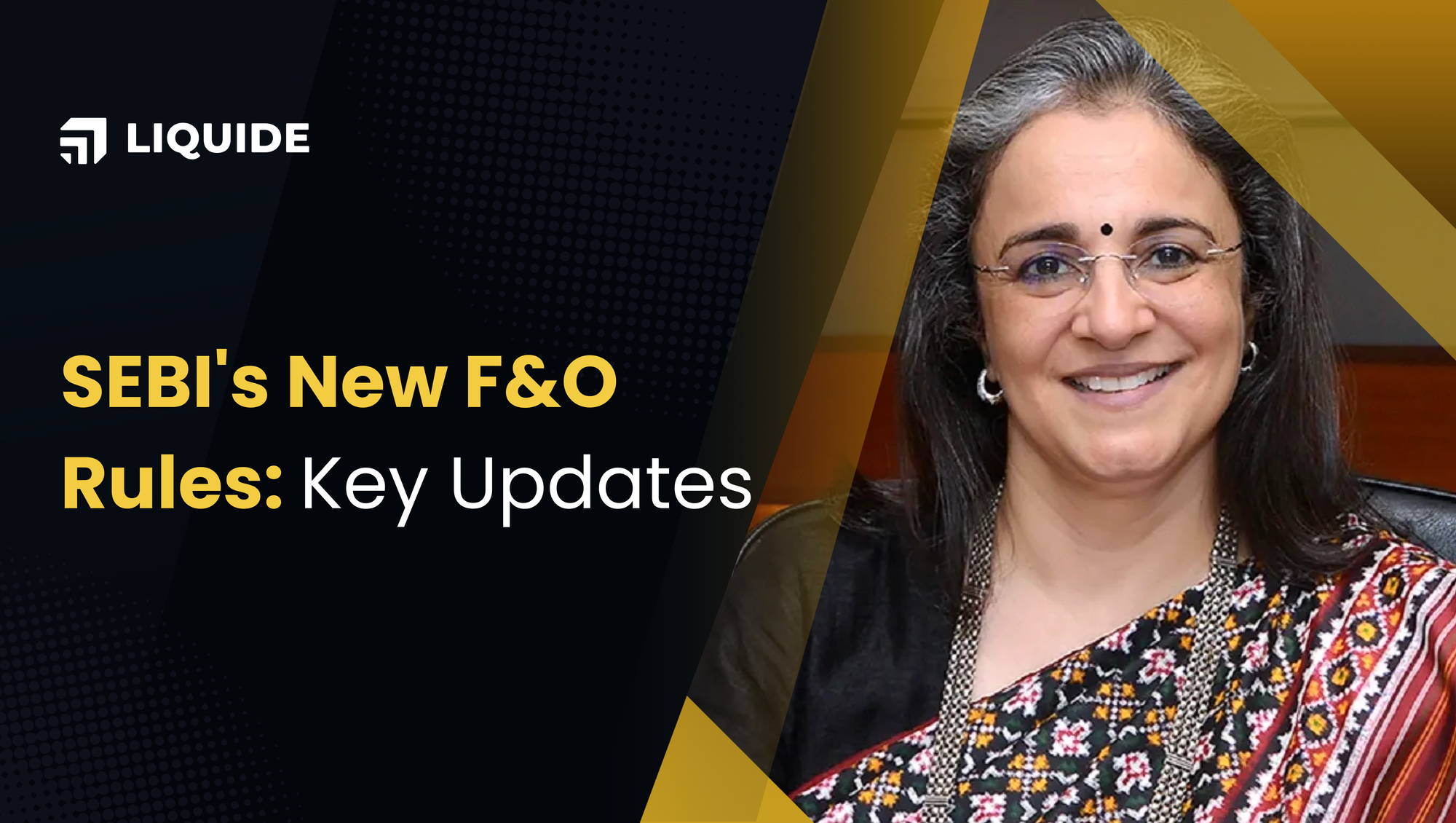New SEBI F&O Regulations Kick in This November: What You Need to Know
Starting November 20, 2024, SEBI will implement new regulations for F&O trading. Discover the key changes including weekly expiries, increased trading thresholds, and stricter margin requirements.

In its latest circular dated October 1, market regulator SEBI (Securities and Exchange Board of India) introduced key measures aimed at strengthening the equity index derivatives framework for enhanced investor protection and market stability.
Detailed Breakdown of SEBI's New Rules
1. Adjustment to Derivatives Expiry Schedule
- Weekly Expiries: Starting November 20, all derivatives will transition to a weekly expiry schedule.
- Single Benchmark Index: Each exchange can now offer derivatives contracts for only one of its benchmark indexes with a weekly expiry.
This restructuring addresses the current scenario where various stock exchanges offer short-term options contracts expiring daily. This practice has led to hyperactive trading activities on expiry days, with average position holding periods in minutes, accompanied by increased volatility in the value of the index through the day and at expiry.
2. Increase in Minimum Trading Amount
- Minimum Trading Amount: The minimum threshold for participating in derivatives has been increased from Rs 5 lakh to Rs 15 lakh.
- Lot Size: Additionally, the lot size will be adjusted so that the contract value on the day of review falls between Rs 15 lakh and Rs 20 lakh.
These moves are aimed at curtailing smaller, speculative trades and focusing on more substantial, informed trading.
3. Phased Implementation of New Norms
- Initial Rollout: The new norms including weekly expiries, larger contract sizes, and increased tail risk coverage will start from November 20, 2024.
- Upfront Premium Collection: From February 1, 2025, there will be an upfront collection of option premiums from buyers.
- Removal of Calendar Spread Treatment: Effective February 1, 2025, the benefit of offsetting positions across different expiries will not be available on the day of contract expiry.
- Intraday Monitoring: Starting April 1, 2025, SEBI will implement intraday monitoring of position limits to ensure compliance throughout the trading day.
4. Additional Margin Requirements
Increased Margins for Short Options: An additional 2% margin requirement will be enforced for short options contracts on the day of their expiry to manage risk more effectively.
Reasons Behind SEBI's New Regulations
Madhabi Puri Buch, the SEBI chief, had cited significant financial losses from household savings through derivatives trading, estimated between Rs 50,000 to Rs 60,000 crore annually, as a major impetus for the new rules.
Additionally, the high volume of speculative trading by retail investors, who contribute to around 50% of the trading volumes in index derivatives, has prompted these changes. These regulations aim to mitigate the risks associated with such trading, which has resulted in substantial cumulative losses.
Expected Impact on Market Dynamics
These new rules may:
- Reduce Trading Volumes: The higher entry barriers and stricter regulations may lead to a decrease in overall trading volumes.
- Affect Market Participants: Both retail investors and High Net Worth Individuals (HNIs) will face changes like upfront premium payments and larger lot sizes, which could deter frequent trading and speculative bets and in turn reduce the overall liquidity in market activities.
With these steps, SEBI aims to curb excessive speculation and protect the investments of thousands of Indian households. While these changes may adjust market dynamics and trading volumes, they are steps toward a safer, more robust financial market environment.
Stay updated with our latest blog posts and expert insights on the Liquide App. Download now from Google Play Store and Apple App Store to access real-time market analysis and recommendations tailored to enhance your investment strategy.

